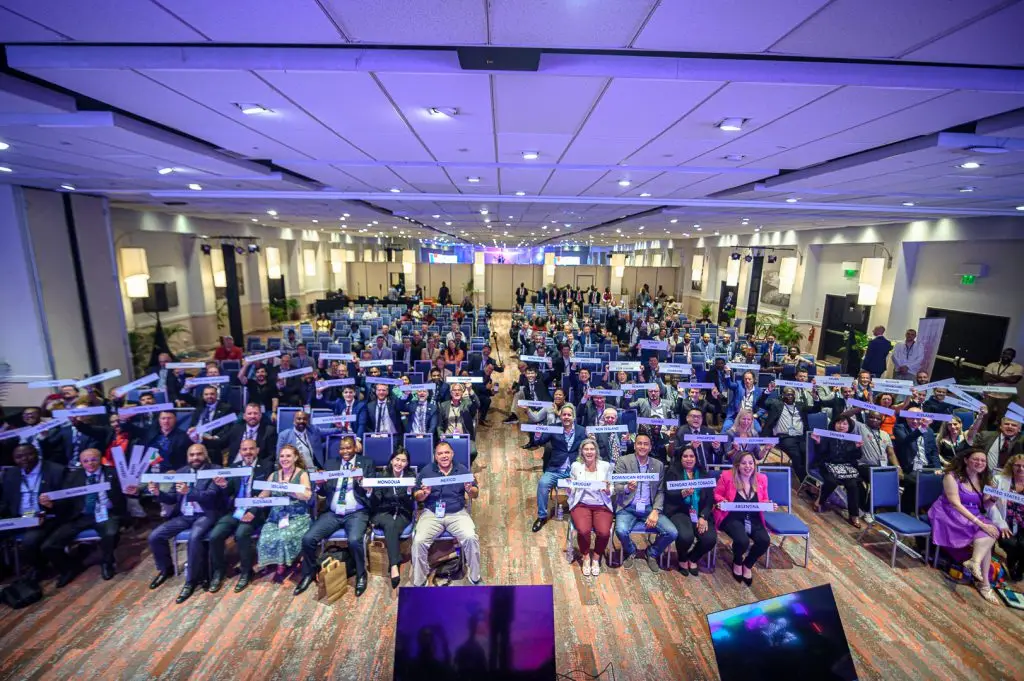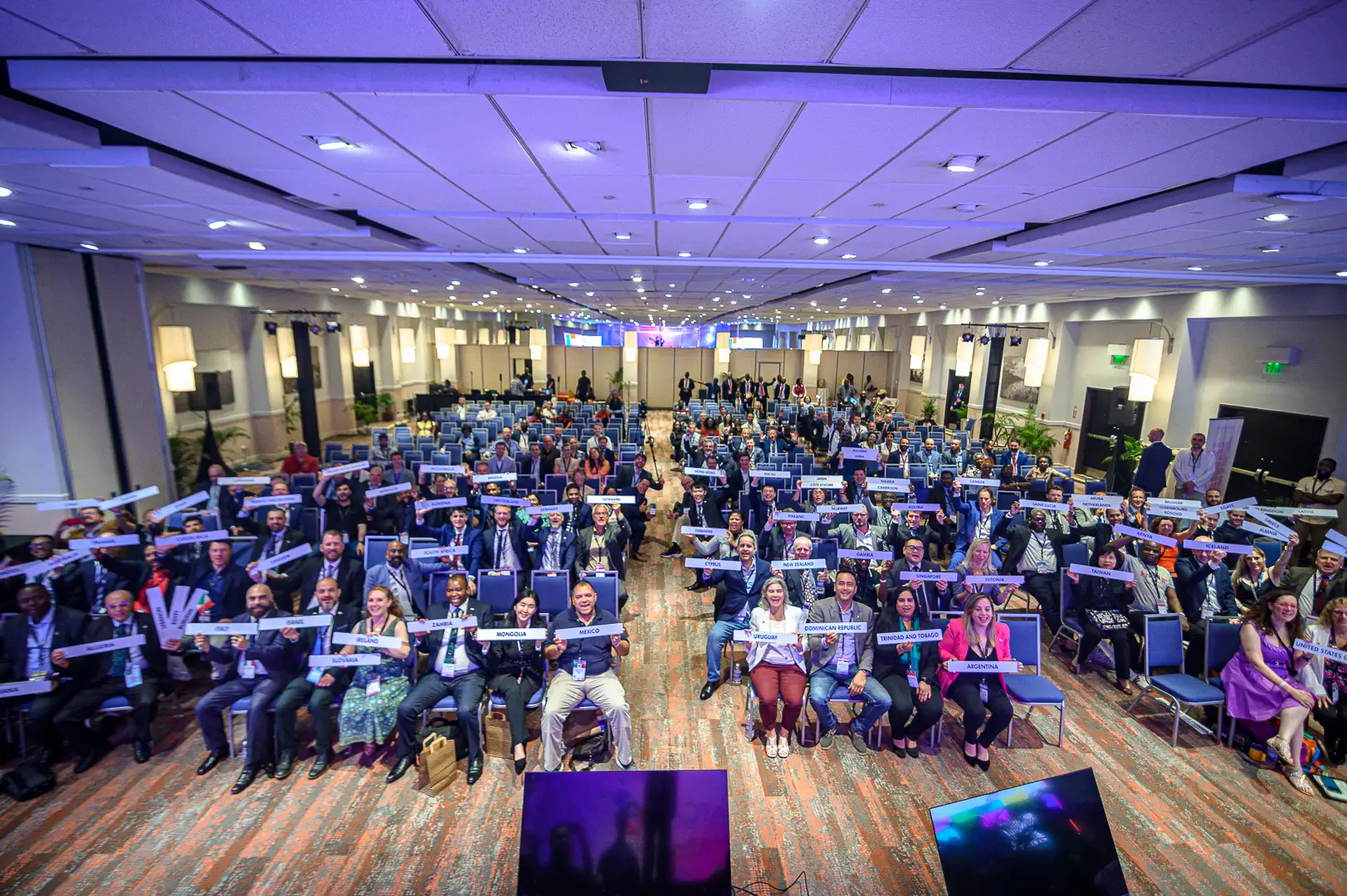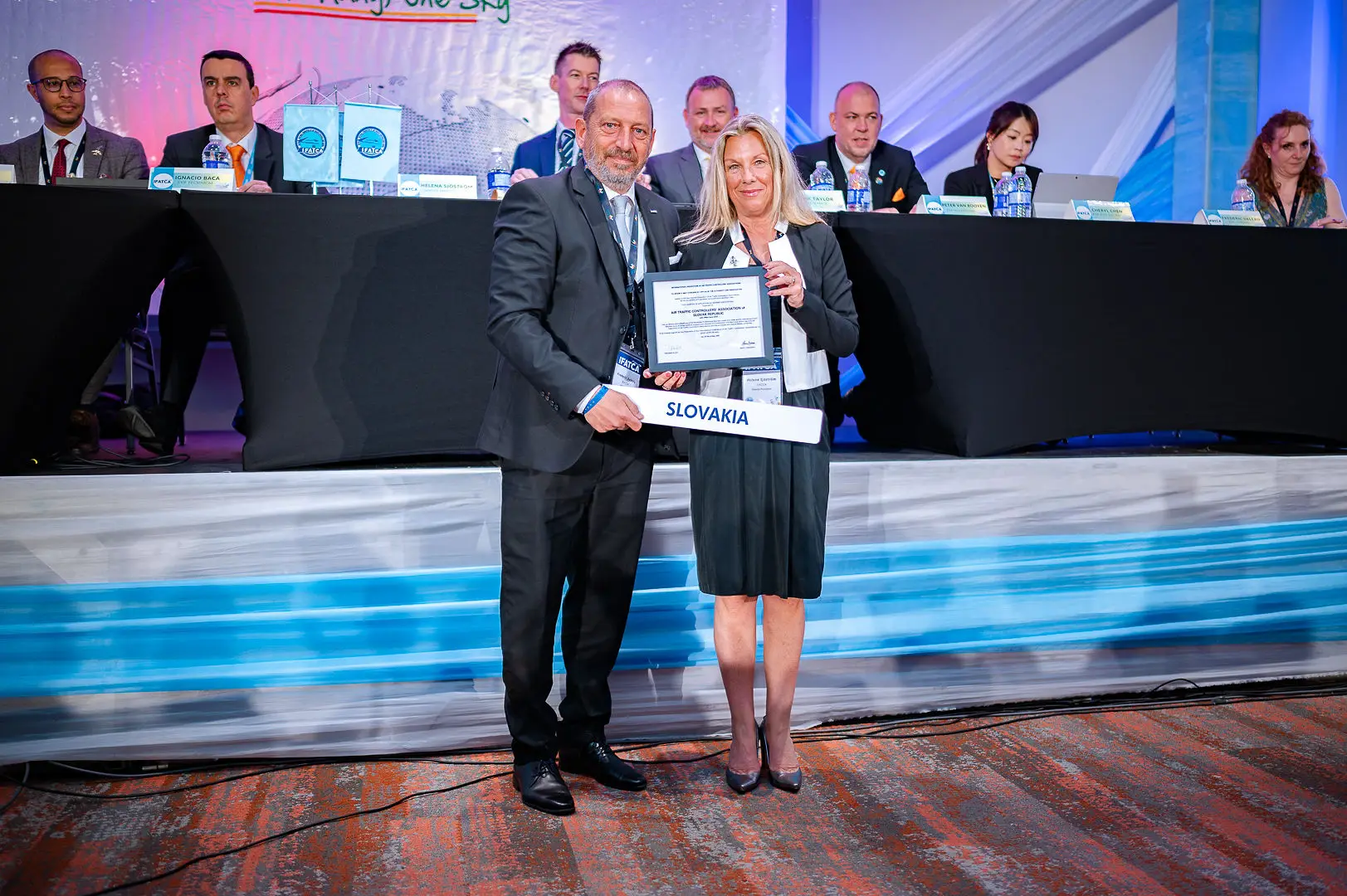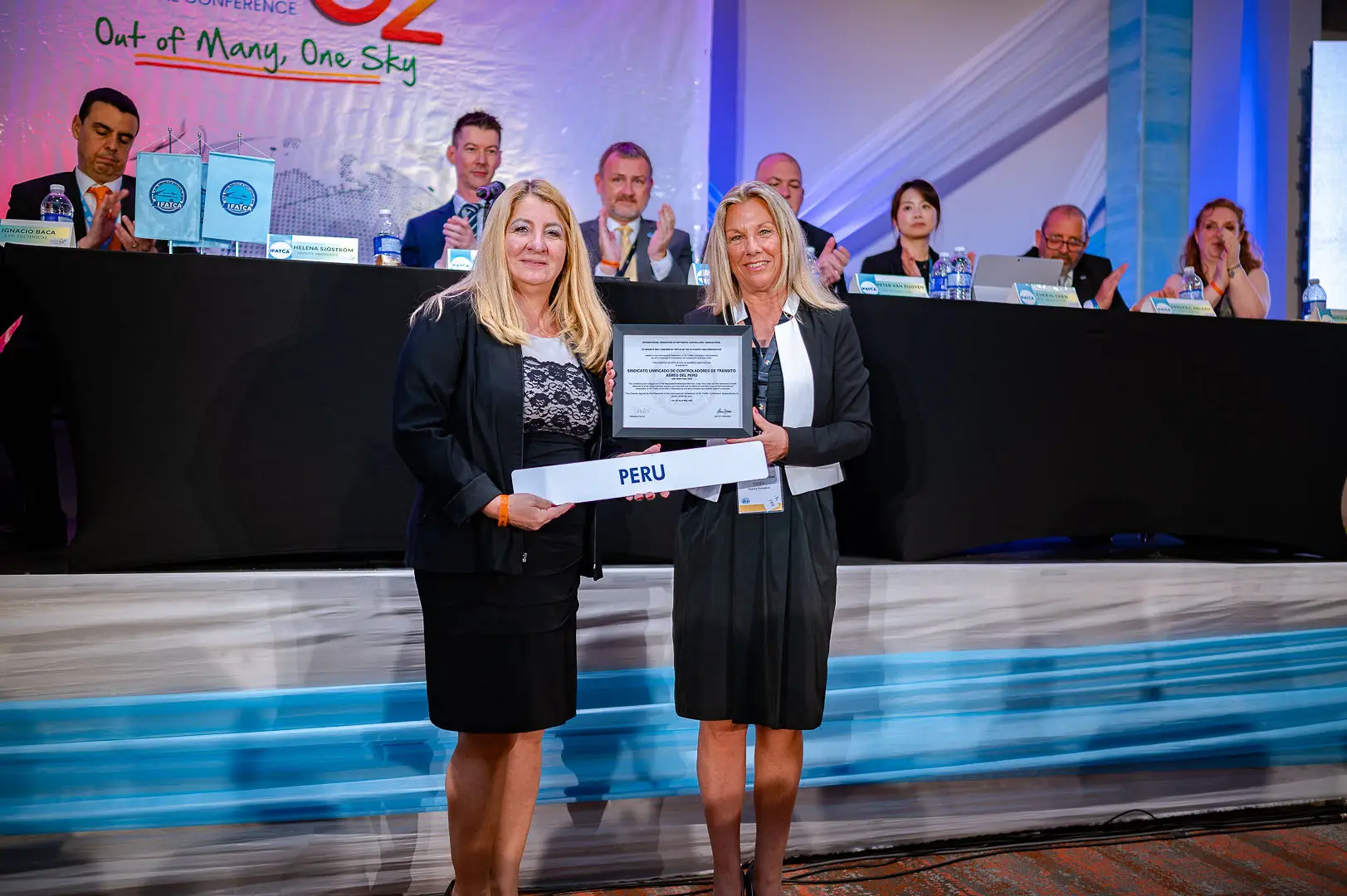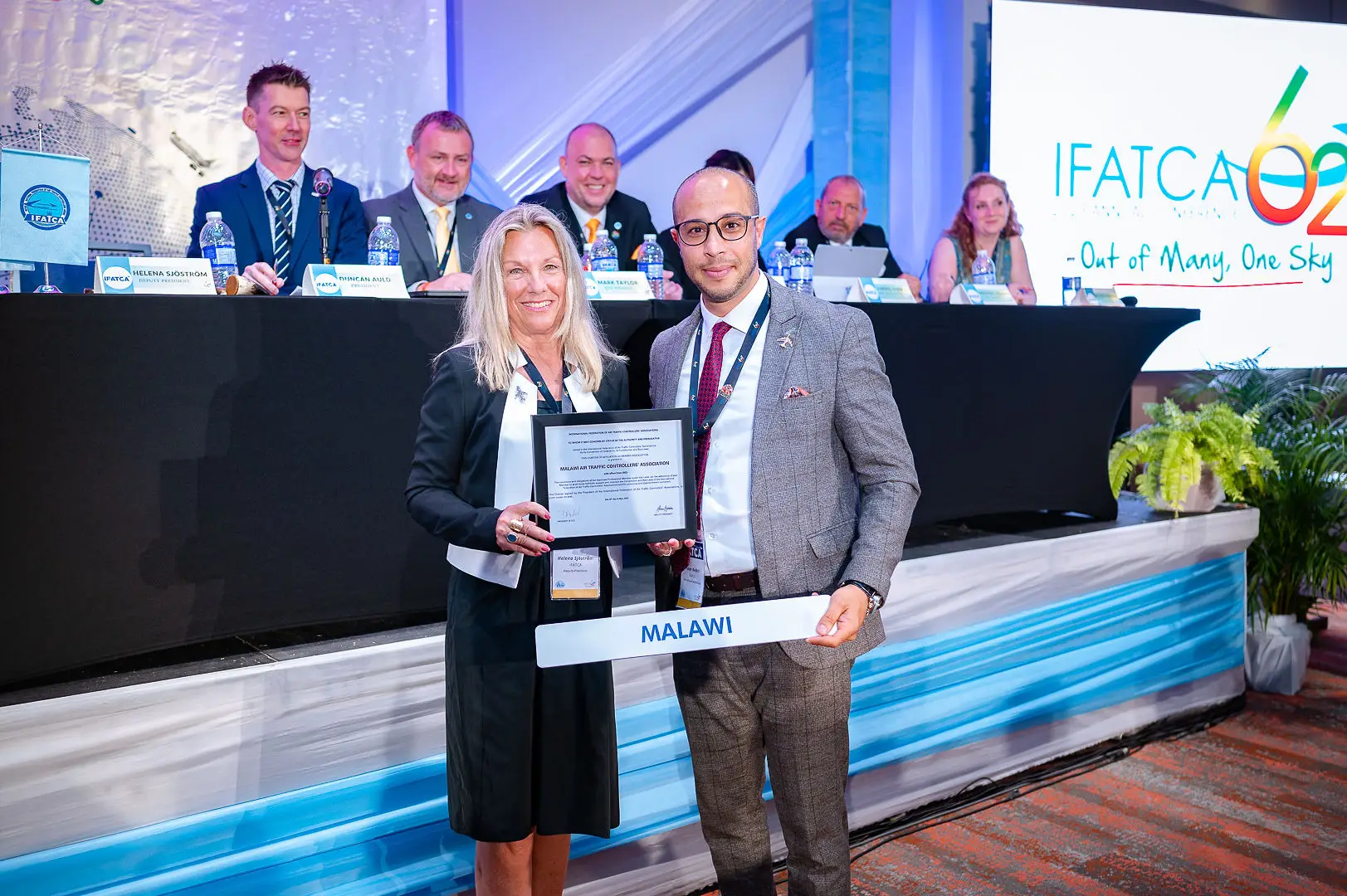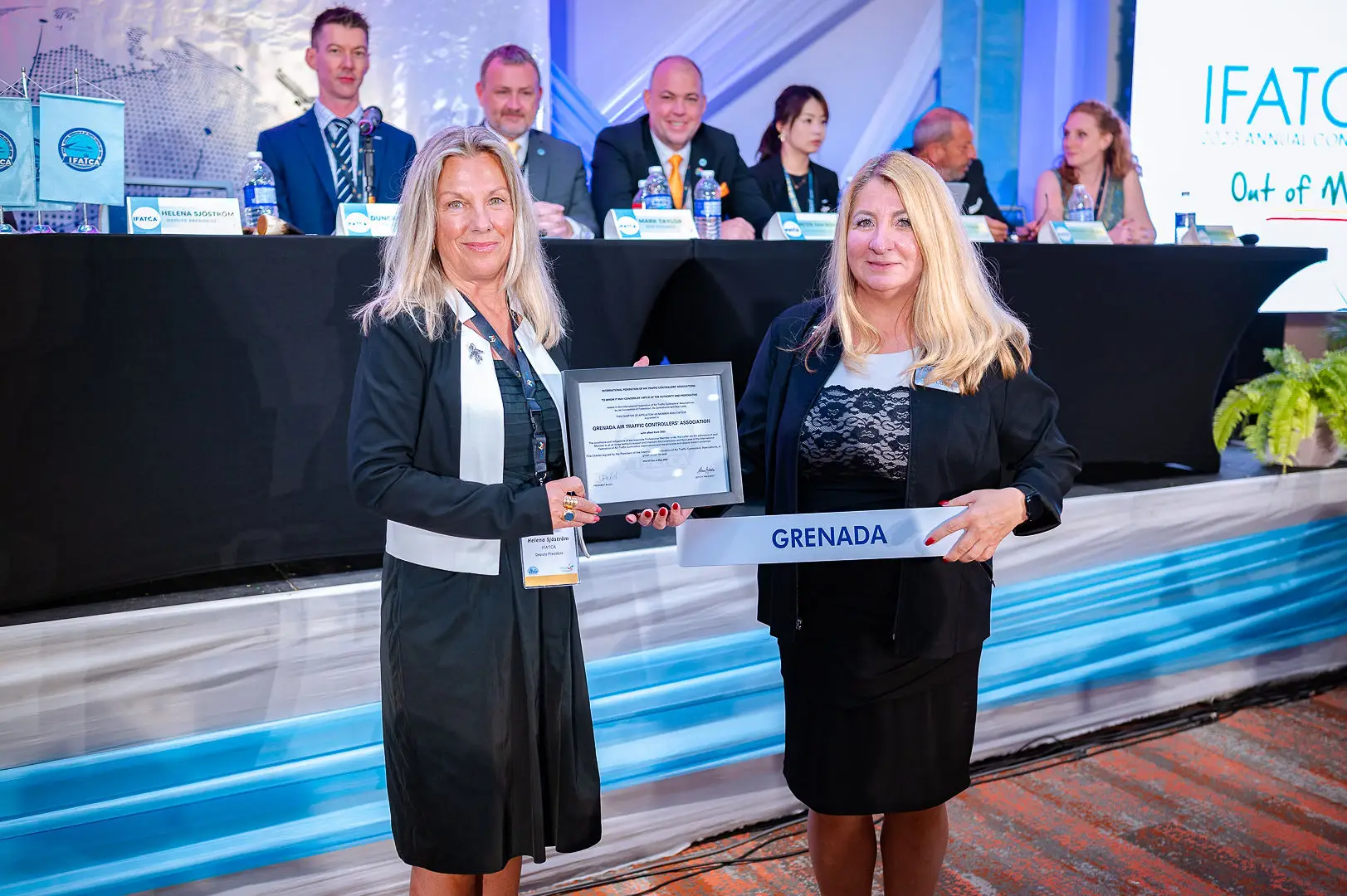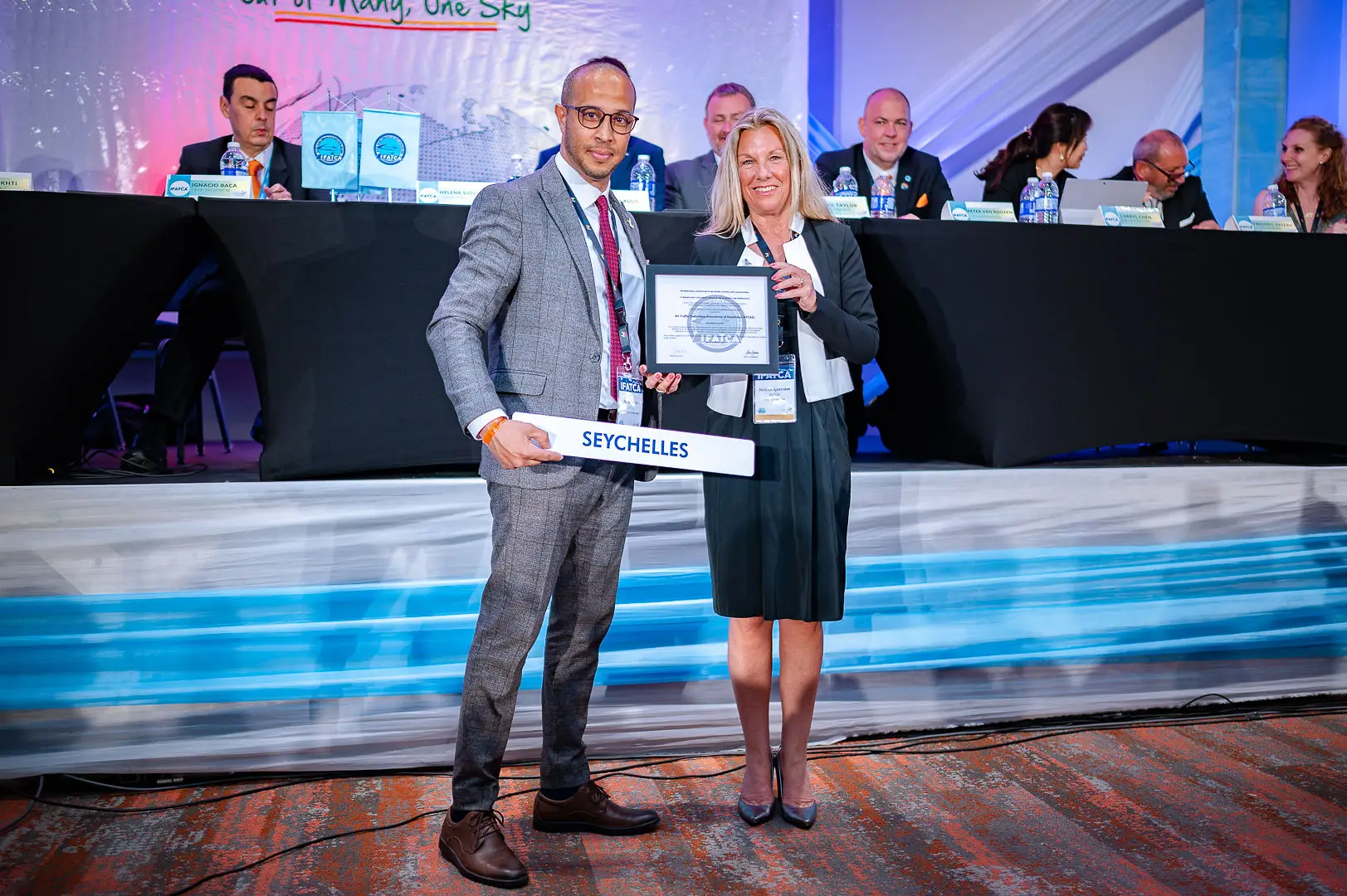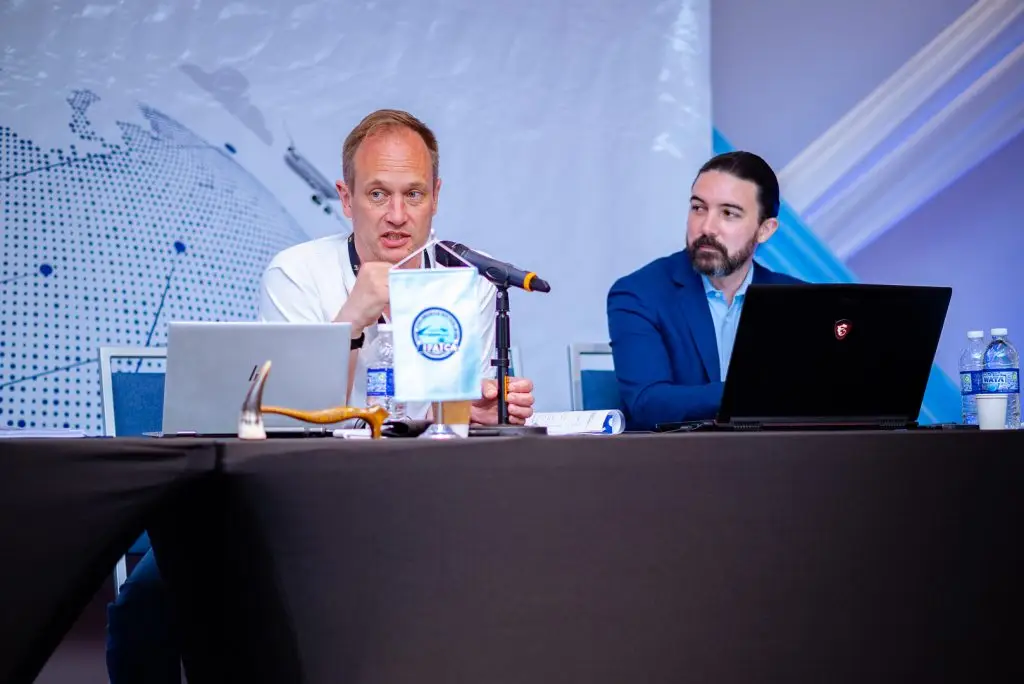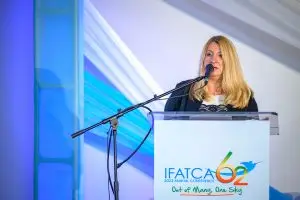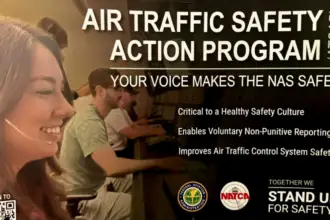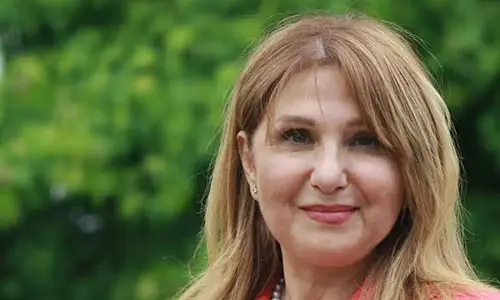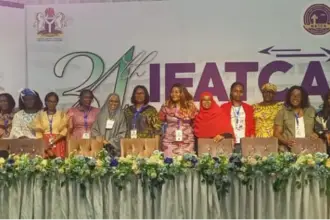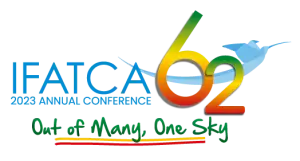
The International Federation of Air Traffic Controllers Associations (IFATCA) held its 62nd annual conference in Montego Bay, Jamaica. More than 250 delegates, including observers from ICAO, ITF and IFISA attended the conference. It was the first in-person conference since 2019, due to the COVID-19 pandemic disrupting international travel and gatherings.
The opening plenary included welcoming speeches from Mr Douglas Lindo, Deputy Board Chairman of the Jamaican Civil Aviation Authority, Mr Nari Williams-Singh, Director General of the Jamaican CAA, Mr Kurt Solomon, President of the host association JATCA and Mr Sean Blair, Chairman of the Conference Organising Committee. IFATCA President and CEO, Mr Duncan Auld, and the Federation’s Deputy President, Ms Helena Sjöström, formally opened the meeting.
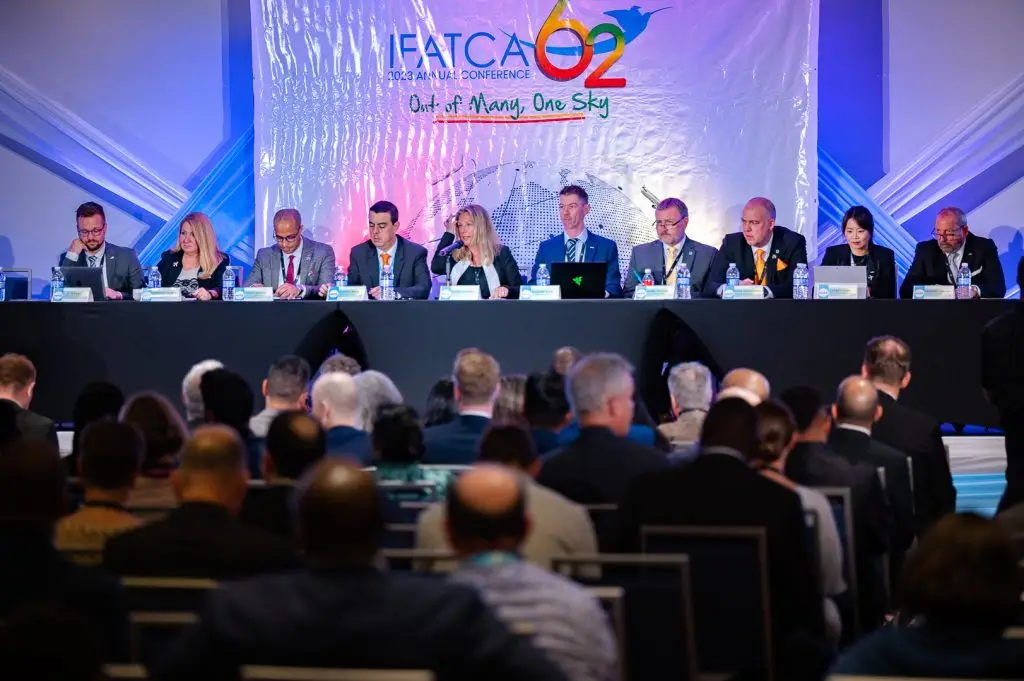
The IFATCA family welcomed four new Member Associations, representing controllers from Grenada, Malawi, Peru and Slovakia, and accepted a new association from Seychelles as a member.
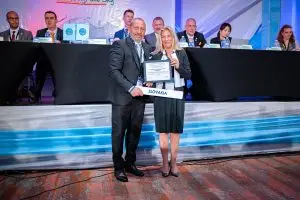
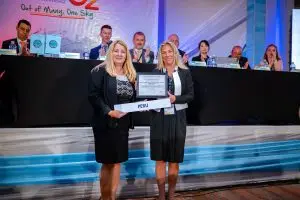
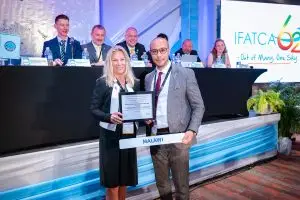
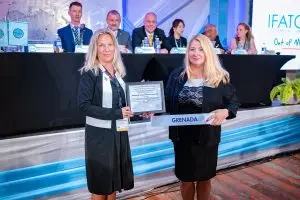
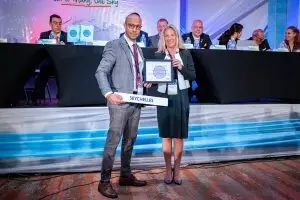
Several of our corporate members took the opportunity to share their products and services, including Thales, Indra, Baymac & Mitre. IFATCA greatly appreciates their continued support, which highlights the value of close cooperation between the different industry stakeholders.
Committee A – Administration
The administrative committee heard updates on the Federation’s activities and finances and discussed proposed changes to the Federation’s administrative policies and bye-laws. Two changes to the constitution were proposed to the final plenary.
The Constitution and Administrative Committee (CAC), under the efficient and knowledgeable leadership of Rob Mason (Australia), produced 14 Working papers. These ranged from support materials for chairing a committee to modifying the election of Regional Executive Vice-Presidents at Regional Meetings. This paper brings more autonomy, direction and strength to our regions, part of the aim of making IFATCA more regionally focussed whilst retaining global leadership.
The three positions in CAC were filled by Uganda, Ghana and Canada, with Trinidad and Tobago participating as a corresponding member. The work program for 2023/24 was set as follows:
CAC Work Program 2023-2024
- To review the feasibility and added value of including the opinion of the Executive Board (EB) of IFATCA in the Working Papers (WP) for the conference;
- Reviewing and clarifying the roles and responsibilities of Committee Chairs and Co-Chairs to determine who is in charge of the conference report;
- Implementing a voting mechanism for the ratification of EVP positions, suggesting that all directors should be responsible for voting either in favour or against the appointment;
- Reviewing the Member Association (MA) application process to enhance its efficiency
EVP Finance, Mark Taylor, reported to Directors on the state of the Federation’s finances, which provided a positive overview of cash in the bank, financial activity over the year, and plans. The Auditor’s Report for the Financial Year 2021/2022 was also explained, highlighting another strong performance with an end-of-year income surplus over expenditure of $120,150.
Updating Directors on those MAs who had not met their financial obligations regarding membership subscriptions and would therefore be facing either suspension or termination of membership, he also supported our Regional EVPs with the applications for the Financial Circumstances Fund. This allows MAs experiencing temporary cash flow issues to seek financial assistance from IFATCA to maintain their membership status.
The budget for the upcoming year was subject to constructive discussion. In line with both the direction of the Federation and the wishes of the Directors, both the 2030+ TF and the EDI TF will be financially supported to assist in their ongoing important work. Similarly, TOC and PLC, plus ICAO will get the backing they need to enhance both policymaking and influence. To protect against increasing costs and the highlighted areas already mentioned, an increase in membership subscription fees of 2.5% would be made to the next invoicing period; those invoices being sent in June.
For the coming year, the Financial Committee (FIC) will again be led by Daniel Nartey from Ghana as Committee Chair. He is joined by Matthew Narine of Trinidad & Tobago and newcomers to FIC, Andrew LeBovidge from the USA and Joel Holguin Hernandez from the Dominican Republic. Further depth and support will be provided by corresponding members, Tom McRobert from Australia and Maria Trivina from Indonesia. The work programme was determined to be as follows:
FIC Work Program 2023-2024
- Review of IFATCA Financial Records in accordance with IFATCA policy.
- Review of the inflation rate for membership subscriptions and categorization of MAs.
- Review of the MA subscription charging mechanism.
- Review procedures for MA payments close to Annual Conference.
- Explore the possibility of investing in property in Brussels and Montreal.
- Review if reporting of outstanding MA debt for 5 years is required and legally binding.
Committee B – Technical & Operational Issues
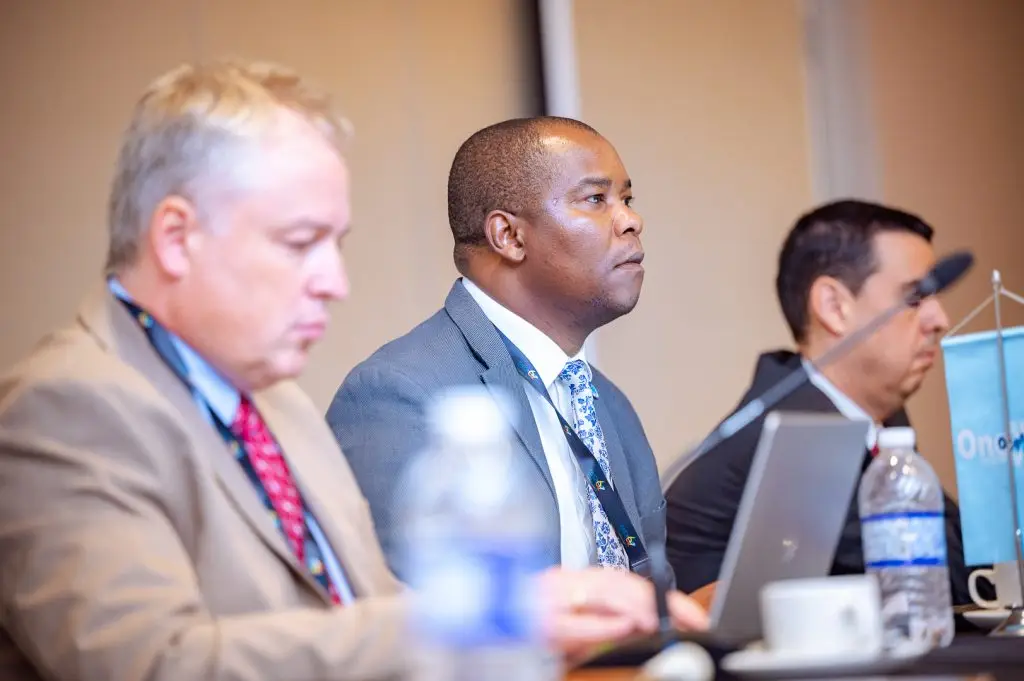
Throughout one and a half days, the Committee received reports from IFATCA officials and representatives to ICAO, and debated on working papers prepared by the Technical and Operations Committee (TOC). Topics discussed ranged from ADS-B assisted visual approaches, terrain clearance, cold temperature correction, trajectory-based operations, the possible change from magnetic to true north and its implications, to the challenges of High Airspace Operations above FL600.
The Committee accepted a total of 13 reports and discussed four working papers drafted by TOC. Two were accepted as information papers. Policy was amended on the following subjects: Remote Tower Operations (now designated Digital Air Traffic Services or DATS by ICAO), and Short Term Conflict Alert (STCA). The continued work of the IFATCA representatives to ICAO under the guidance of our Liaison Officer, Mr Jean-Francois Lepage, as well as the member of TOC led by its Chair, Ms Jaymi Steinberg, was once more a testament to the high standard and professionalism that makes IFATCA an important and well-respected player on the global stage of civil aviation.
Special mentions must go to Mr Oliveiro Barsanti from Italy, IFATCA representative to the ICAO Flight Operations Panel, who could not attend the conference because he fell ill shortly before embarking on the journey, and still found the strength to record his presentation from his sickbed, and to Mr David Perks who, in between his duties as Chair of the Professional and Legal Committee which required his almost constant presence in Committee C, still found time to present his report to our Committee as the IFATCA representative to the ICAO Separation and Airspace Panel.
Such was the hunger to get back to work within IFATCA after three years of COVID-19 that 13 member associations indicated their willingness to become part of TOC for the period 2023/24. The following eight were elected: Canada, EGATS, Germany, Ghana, Hong Kong, Italy, Singapore, and USA.
TOC Work Program 2023-2024
- RPAS Airspace Rules (Continued)
- Statistical Investigation
- TPM Policy Review
- DAA and Remain Well Clear
- ATMOPSP Educational Material
- NOTAMs
Committee C – Professional & Legal Issues
Committee C, chaired by Sten Verpalen (Netherlands) and co-chaired by Nyamgerel Dashdolgor (Mongolia), was very well attended by delegates and observers, with proceedings taking place in a relaxed yet professional manner. It was pleasing to see a high level of discussion between the delegates on a wide range of topics, especially the input from the first-timers. Although more than half of the room consisted of newcomers, they were not reluctant to speak up.
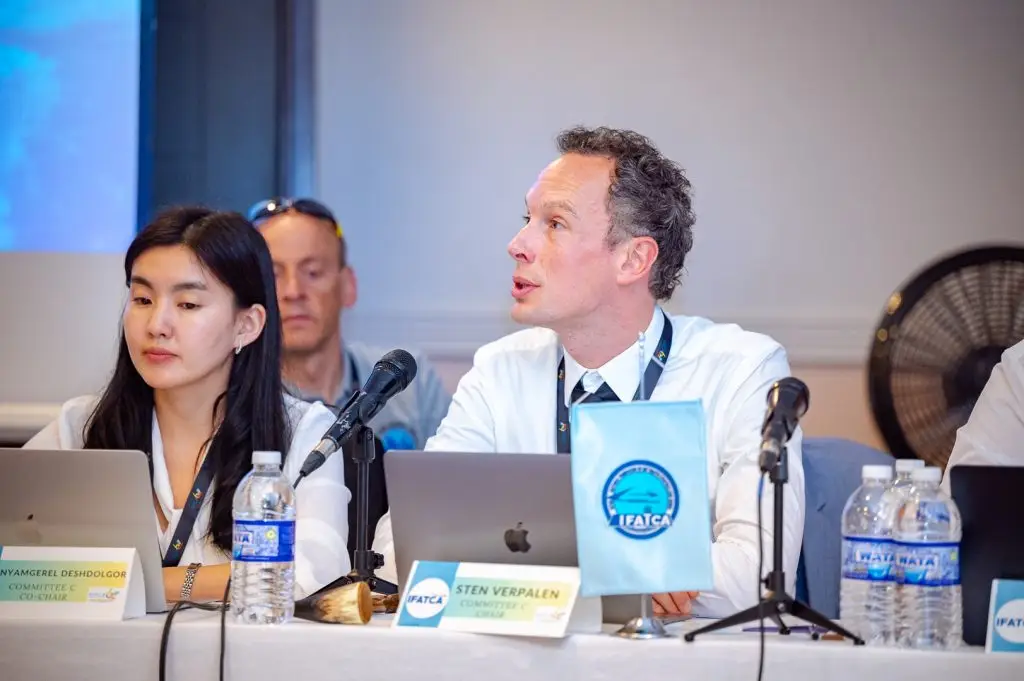
Under the leadership of David Perks, PLC once again developed high-quality working papers. Nine work studies were presented in Committee C, eight of which contained recommendations to add, amend or delete IFATCA policy.
PLC recommended new conditions for operating multiple ratings during the same shift considering the limitations of our cognitive abilities. The existing policy on simultaneous training on adjacent positions was expanded to reflect current operations in member states.
A study on converting military to civilian licenses prompted in-depth discussions. A recommendation was passed to allow recognition of prior learning and experience for military air traffic controllers.
Staffing shortages remain a worldwide challenge. Both PLC and Dominican Republic presented a paper on this topic, and together, they gave a complete overview of what is happening in the world. The policy we already have on this topic was strengthened and extended. Compliments to the Dominican Republic for submitting an excellent working paper to the conference.
A comprehensive paper on Information Overload was provided to the delegates, and the outdated concept of ‘free flight’ was removed from our TPM since the policy has not been used for 30 years.
Adam Exley (UK GATCO) was elected Chairman of the Federation’s Professional and Legal Committee (PLC). He will replace David Perks (Australia), who will remain active as IFATCA Representative on the ICAO Separation and Airspace Safety Panel and as an appointed advisor of PLC.
The following Member Associations were elected as members of PLC: USA, Israel, Kenya, Japan, The Netherlands, Bulgaria, Australia, Romania, Italy, Greece, Slovenia and Jamaica. The committee will study the following topics in preparation for the 2024 conference.
PLC Work Program 2023-2024
- Review of the “ATFM” policy – Slovenia
- Review of the “automation” policy – Bulgaria
- VFR/SVFR traffic workload and capacity – Romania
- Complete review of the “TRNG” policy – The Netherlands
- Positive safety culture vs a just culture – Italy
- Investigate the potential introduction of a low traffic licence – Kenya
- De-activation of safety tools and systems to the ATCO – USA
- Review of the “Work and Rest Scheme” policy – Greece
- Define a definition for an Air Traffic Controller – Japan
- Confusion with leased aircraft markings and callsign – Jamaica
- Review of the “Operating in Unsafe Airspace” policy and the closure of airspace procedures – Israel
- RPAS DAA (detect and avoid) RWC (Remain well clear) – Australia
Combined Technical and Professional Committee (B & C)
The tightly packed agenda started with reports by the Technical and Professional Secretary as well as the IFATCA Liaison Officer to ICAO, followed by a presentation by Céline Canu, one of IFALPAs technical officers, focusing on joint projects with IFATCA and the current hot topic within IFALPA, Reduced Crew Operations. IFALPA is also following the RPAS developments very closely. Céline stressed that IFALPA and IFATCA together form a strong voice for the frontline operators in ATM.
The meeting heard the report of the IFATCA representative to the IFALPA ATS Committee, detailing ongoing work within IFALPA in the Air Traffic Services domain.
Work in the committee subsequently focused on the recurring topics of Remote and Virtual towers, now redesignated by ICAO as Digital Air Traffic Services, and RPAS. In both areas, IFATCA’s experts are in a position and willing to influence the ongoing developments to make sure that we, the controllers, remain the focal point. New draft policy statements, prepared by the Technical and Operations Committee, the Professional and Legal Committee, the Remote Towers Task Force and the RPAS Task Force, were accepted in both domains. A special mention must certainly go to Mr Eugenio Diotalevi (Italy), who over the last years, has been relentlessly pursuing all things RPAS, and through his dedication, has become of the leading experts in this domain.
Artificial Intelligence has made an appearance in public debate in recent months, and it comes as no surprise that the aviation industry has also been taken in by its apparent charms. The Federation must be ready if this change becomes a reality, and most of today’s ATCOs’ tasks will be executed by automation instead of human operators, even if their presence will still be necessary in order to verify the correct functioning of systems and intervene in case of disruption. New policy was accepted by the joint committees as a starting point for further study of this subject.
Awards
Following a nomination by the Ukrainian Federation of Air Traffic Controllers (FATCU), Mr Philippe Domogala (EGATS) was awarded the Award of Merit for coordinating support for our Ukrainian colleagues affected by the Russian invasion. In his acceptance speech, Philippe stressed the group effort. He thanked everyone that donated money and, above all, Member Associations that helped and continue to help their Ukrainian colleagues with material support.
The Executive Board Award has been awarded to the outgoing EVP Technical, Mr Ignacio Baca (Spain). Ignacio was elected as IFATCA EVP Technical in 2017. Before that, he was a member of TOC and chaired the committee from 2012 onwards.
The Executive Board Award has been awarded to the outgoing Chair of the Professional and Legal Committee (PLC), Mr David Perks (Australia). David took charge of the committee as the COVID-19 crisis was winding down and will remain active as IFATCA Representative on the ICAO Separation and Airspace Safety Panel and as an appointed advisor of PLC.
Nominated by the IFATCA Executive Board, the Award of Merit was presented to the outgoing Communications Coordinator, Mr Philip Marien (EGATS), for his outstanding service to the Federation. Philip could not join the meeting in Jamaica but appeared via videolink to thank the delegates and the Executive Board and to reassure his successor, Nicola NiRiada, that he would continue to support her in her new role.
The Executive Board Award has been awarded to a very good friend and a supporter from IFALPA, Mr Felix Gottwald. Felix participated in numerous conferences and TOC/PLC meetings and became a valued and respected contributor to the discussions.
The Executive Board Award has been awarded to the Technical and Professional Secretary, Mr Joy Bhattacharya (India). In his role as TPSEC, Joy has been editing the IWEN for as long as anyone can remember.

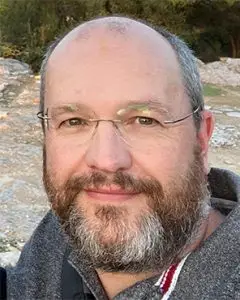
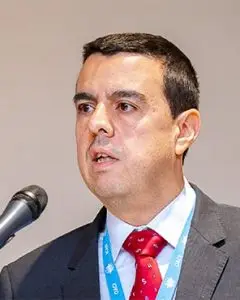
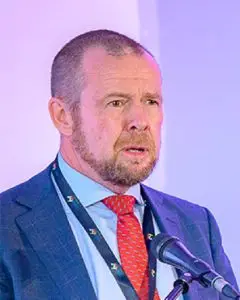
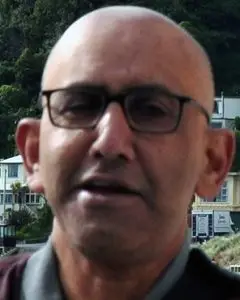

IFATCA Partners
Fascinating presentation by Jeff Woods and Elly Smith from Mitre Corporation on Trajectory Based Operations (TBO) Evolution, explanation of TBO and an introduction to the Info-Centric NAS Vision, what it entails and how the two relate. The Mitre Corporation is an American not-for-profit organisation based in Massachusetts and Virginia that was established to advance national security in new ways and serve the public interest as an independent advisor.
IFATCA Partners and event sponsors present during the conference were Baymac Management Services Limited, Indra and Thales.
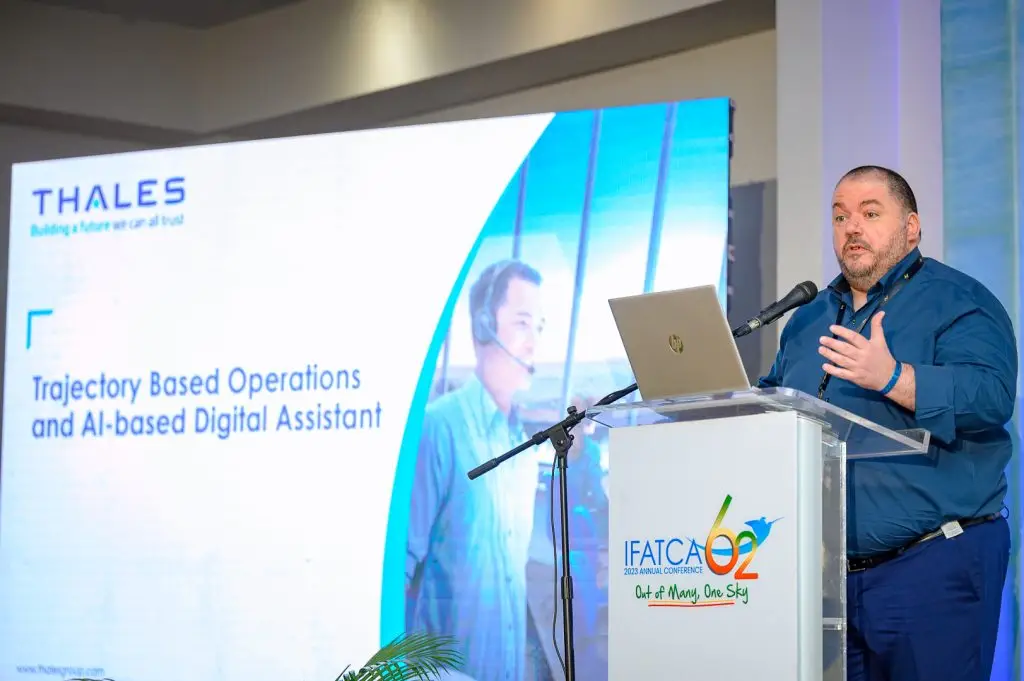
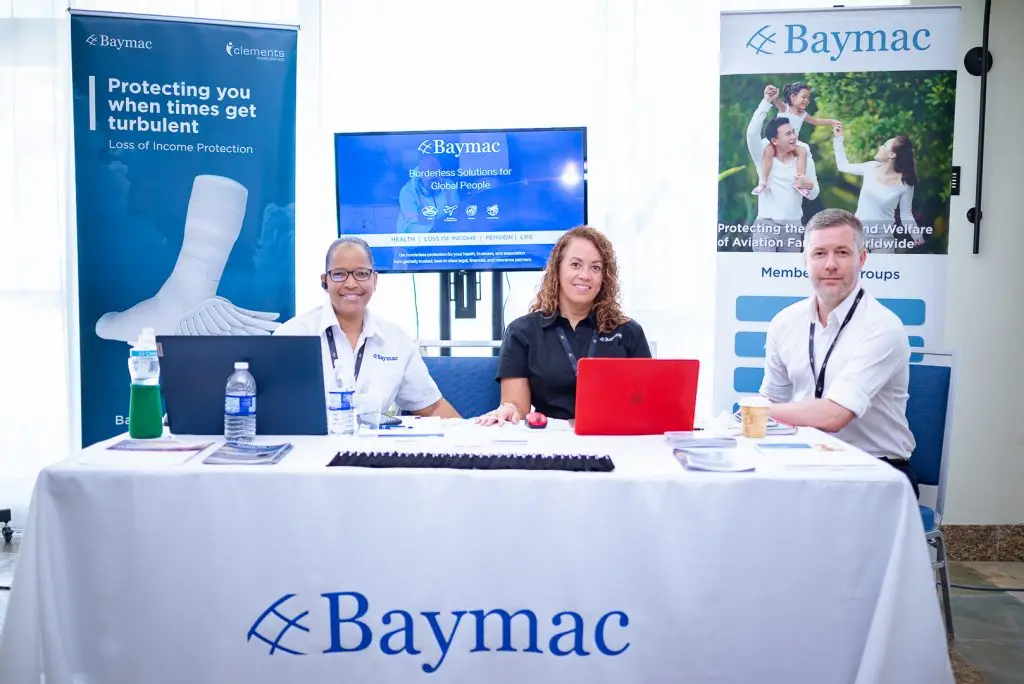

Baymac (Baymac Global) is an international aviation management consultancy firm consisting of aviation professionals, including international aviation consultants, airline managers and pilots, who specialize in providing turn-key management solutions for companies and individuals within the aviation industry.
Thales (Thales) is the leading global supplier of air traffic management solutions and a global technology leader investing in digital innovations – Big Data, artificial intelligence, connectivity, cybersecurity and quantum technology.
Indra (Indra Company), is a world leader in providing proprietary solutions in Transport, Air Traffic and Defence markets. Many of us work with their systems in our towers, approach units or en route centres.
IFATCA and the International Flight Information Service Association, IFISA, officially signed a Memorandum of Understanding. This collaboration paves the way for closer cooperation in our shared mission of improving global air navigation. Here’s to a successful journey together!
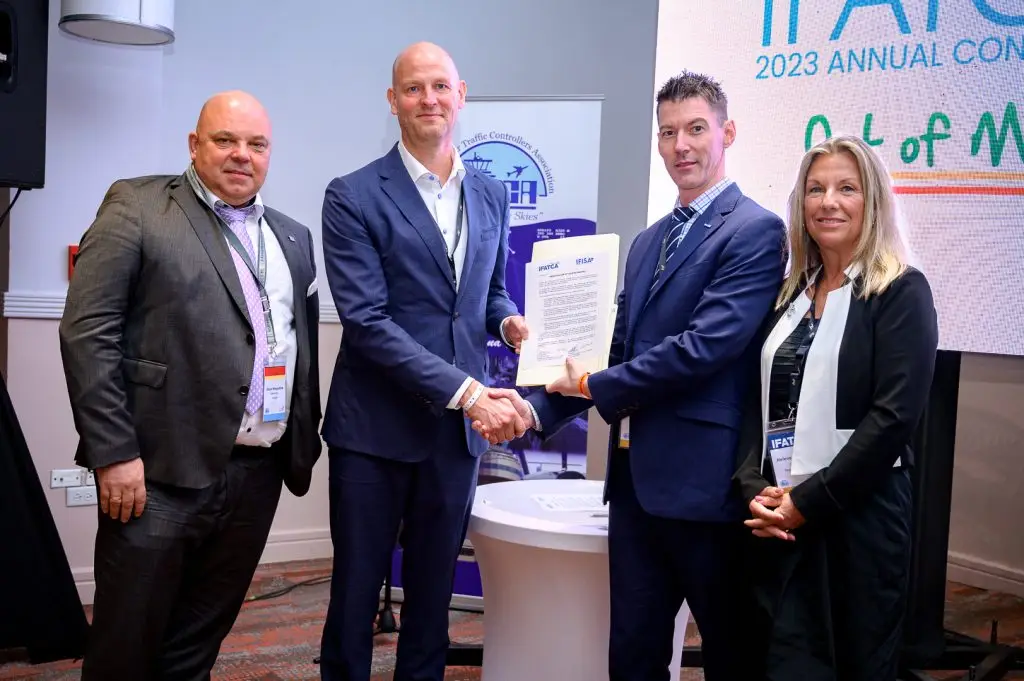
Briefings & Regional Meetings
Before the formal start of the conference, a series of briefings were held to update Member Associations on how the Federation operates. These were highly appreciated, especially by conference first-timers. Topics were:
The four IFATCA regions also held informal regional meetings to discuss topics in their regions. More details on these four meetings can be found in a separate article, or jump to the regions directly: Africa & Middle East, Americas, Asia/Pacific or Europe.
IFATCA2030+ Workshop
Thanks to all the participants for their very active participation in the IFATCA2030+ workshop, which was held on Tuesday morning. The results of the discussions will be shared shortly as soon as the Task Force has had a chance to fully process the data, comments and suggestions.
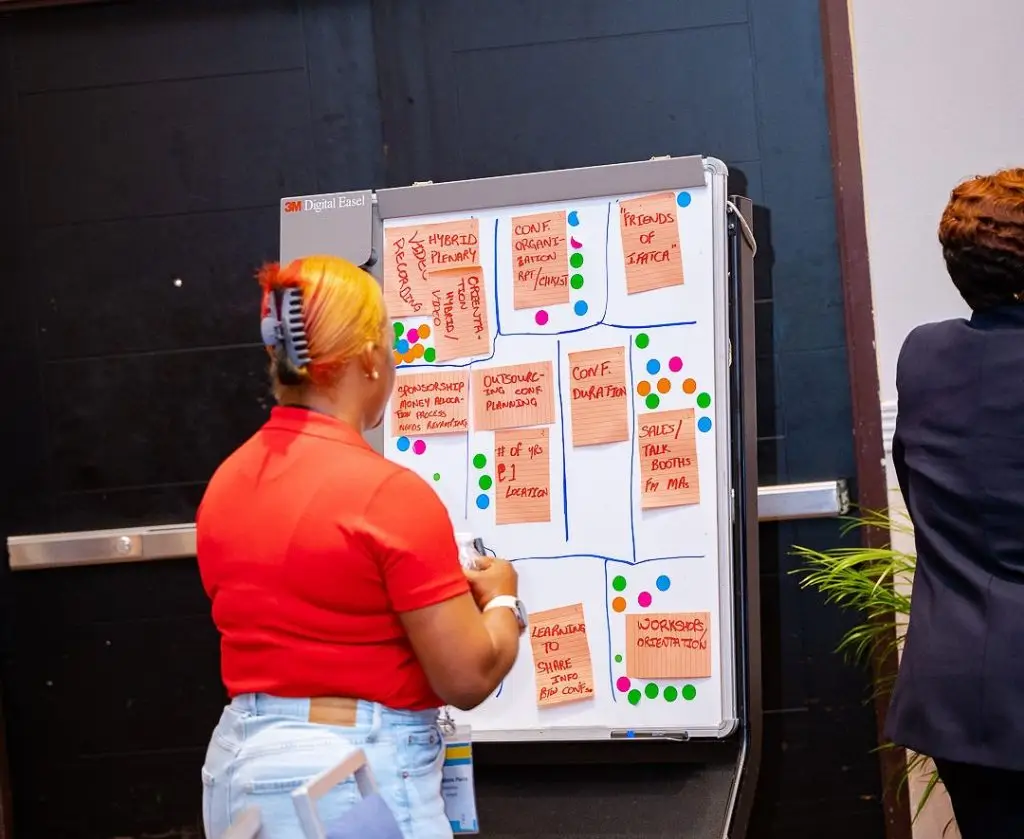
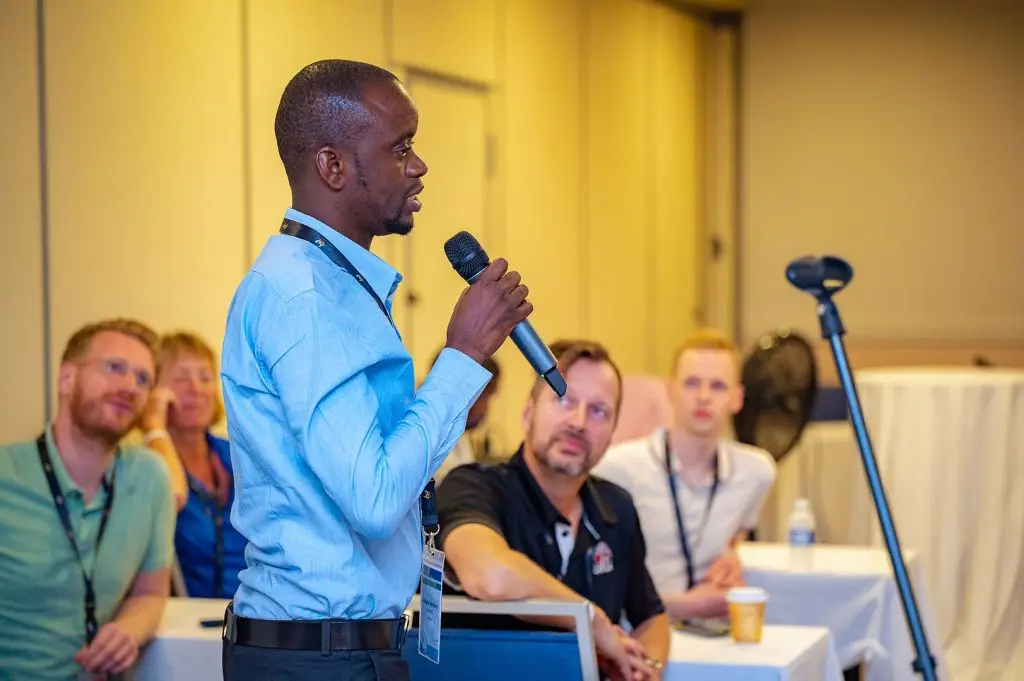
IFATCA Panel
A panel discussion on Friday, moderated by Ms Patricia Gilbert(IFATCA EVP Americas, USA), debated the topic of “The future of ATC: Examining the Next 100 Years”. A more detailed article on the discussion can be found here.
New Executive Board
Elections for the IFATCA Executive Board resulted in the following composition:
(yellow = re-elected; blue = newly elected; green = ex-officio)

Duncan Auld
President & CEOAustralia

Helena Sjöström
Deputy PresidentSweden
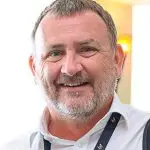
Mark Taylor
EVP FinanceUnited Kingdom

Peter van Rooyen
EVP ProfessionalSouth Africa

Benjamin van der Sanden
EVP TechnicalNetherlands
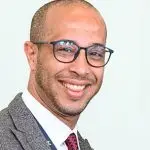
Fateh Bekhti
EVP Africa & Middle EastAlgeria

Trish Gilbert
EVP AmericasUSA

Cheryl Chen
EVP Asia/PacificTaiwan
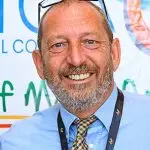
Frédéric Deleau
EVP EuropeEGATS
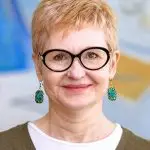
Tatiana Iavorskaia
Office Manager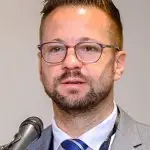
Jean-François Lepage
ICAO ANC LiaisonCanada

Nicola NìRiada
Communications CoordinatorIreland
Final Plenary
Closing remarks during the final plenary, including those of Mr Rohan Campbell, acting DG of the Jamaican CAA, again stressed the value of international cooperation. IFATCA PCX and CEO, Mr Auld, closed the conference by thanking our member association from Jamaica for their huge effort in organising a successful conference.
The 63rd Annual Conference of IFATCA will be held in Singapore from 15 to 19 April 2024. United Arab Emirates was selected as the host for the 2025 Annual Conference (dates TBC).
